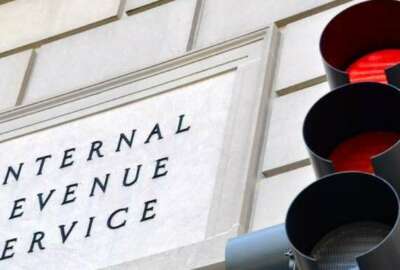

The IRS' workload is expected to grow under the tax reform legislation President Donald Trump signed into law in December last year, but Treasury Secretary Steven...
The Internal Revenue Service’s workload is expected to grow under the tax reform legislation President Donald Trump signed into law in December, but Treasury Secretary Steven Mnuchin, along with the agency’s in-house watchdog and its largest union, say the IRS doesn’t have enough funding or employees to implement the tax law.
Last Friday, Mnuchin said that the IRS should expect additional funding and personnel to carry out its end of the tax reform bill.
“This touches every single aspect of the IRS, from technology, to processes, to forms, and we are speaking with Congress about getting additional funding for the implementation,” Mnuchin said at an event at the Economics Club in Washington, D.C. “We would expect that we would hire a significant number of people to help with the implementation.”
The Treasury secretary’s conclusions reflect some of the findings of National Taxpayer Advocate Nina Olson, who in her annual report to Congress concluded the IRS needs an additional $495 million in funding for fiscal years 2018 and 2019 to handle the systems updates needed to roll out the new tax law.
Tony Reardon, president of the National Treasury Employees Union, told Federal News Radio that changes in the tax law could create a backlog of phone calls to the IRS that the agency does not have the ability to answer.
“I think that we are going to see a huge increase in the number of calls from the American public, and the IRS needs the funding — they need the tools, they need the resources, including human resources — to be able to respond efficiently and effectively,” Reardon said Thursday.
The Taxpayer Advocate’s report, which Olson released last week, estimates that the IRS will be able to answer about 40 percent of basic calls to its tax help hotlines. And due to cutbacks in the employee training budget, Olson said call centers could only answer “basic” tax questions over the phone.
“I think there’s going to be folks that have to be involved in drafting the new policies and the regulation and changing the tax forms that need to be developed,” Reardon said. “I think there’s certainly a lot of training that employees are going to need to receive on all of the changes.”
Since 2010, the IRS has lost nearly $1 billion from its budget and more than 21,000 full-time employees. But the cuts could go deeper.
NTEU said the House Appropriations Committee would cut the IRS budget by another $155 million, and the Senate Appropriations Committee would reduce the agency’s spending by $124 million.
“In other words, Congress is adding massive new responsibilities to the IRS and then expecting them to handle it with less money and fewer employees,” Reardon said.
Looking ahead to the rest of 2018, Mnuchin also said last Friday that he would seek new funding to modernize the IRS’ information technology systems, which he said should play a role in obtaining uncollected revenue owed to the tax agency.
“One of my projects for the IRS is to look at how we can use technology much more for audits. I think we want to make sure that automates … there’s something called the tax gap, which is the theoretical difference between what we do collect and what we should collect, and we’re going to look at using technology to narrow that,” Mnuchin said.
Reardon said he agreed that the IRS needs to modernize its IT infrastructure, but also said Congress needs to rethink its strategy of hiring private debt collectors. According to the Taxpayer Advocate, the IRS spent more than $20 million on private debt collectors in fiscal 2017, but only got $6.7 million in payments. The IRS stopped its private debt collection program in 2009, after the Taxpayer Advocate expressed similar doubts about its effectiveness.
“I’m not quite certain why we keep moving into already plowed land. We keep thinking that, as a country, we’re going to get a different result, and we end up with the same result every single time, which is a failed approach of using private collection agencies,” Reardon said.
Amid the conversation over federal appropriations, Congress has until Friday at midnight to avert a government shutdown. Reardon said in past shutdowns, including the one in 2013, about 87 percent of IRS employees got furloughed.
“Clearly, that has an impact on the ability of the agency to prepare for the Jan. 29 start of this year’s filing season and the ability to move forward with the changes needed to accommodate the overhaul of the tax system,” he said.
Copyright © 2025 Federal News Network. All rights reserved. This website is not intended for users located within the European Economic Area.
Jory Heckman is a reporter at Federal News Network covering U.S. Postal Service, IRS, big data and technology issues.
Follow @jheckmanWFED

